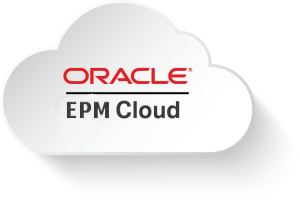What Are The Key Benefits of EPM Tax Reporting?
Tax reporting is the process of documenting and submitting financial information to tax authorities for compliance with tax laws and regulations.
Cost Management
Make informed decisions for the future and utilize precise models for profitability analysis, cost allocation, IT finance, and tax pricing.
Planning & Budgeting
Enable agile plans, scenario modeling, long-term planning, budgeting, and leveraging both advanced technologies and industry best practices.
Account Reconciliation
Automate reconciliations and transaction matching to enhance the security of your financial statements, effectively managing associated risks.
Financial Consolidation
Adapt to evolving business needs with faster and transparent reporting. Utilize comprehensive built-in features for end-to-end close tasks.
Enterprise Data Management
Handle business changes encompassing data governance, visualizing change data, and managing hierarchies.
Freeform
Enhance decision-making by essbase's flexibility with SaaS scalability and governance, empowering you to bring your ideas to life.
What Are The Key Features of Oracle EPM Tax Reporting?
- Access Up-to-Date Data: Enhance accuracy and speed in your tax provision process by directly accessing current financial data from general ledgers or financial consolidation systems.
- Automated Tax Calculation: Calculate tax provisions and generate tax journal entries automatically, covering calculations from the lowest legal entity level to consolidated tax disclosure, meeting US GAAP and IFRS requirements.
- Seamless Integration: Easily import tax return details from your tax software, reducing manual tasks, and effortlessly export tax provision and trial balance data to your tax compliance software with a single click.
Automatic Country-by-Country Data Entry: Automatically populate the country-by-country reporting (CbCR) template from your ERP or financial consolidation systems, ensuring transparency with source financial figures.
Tax Data Analysis: Utilize dashboards with pre-built key performance indicators (KPIs) for common audit flags like revenue per employee and return on equity.
Global Collaboration: Enable worldwide collaboration within the corporate tax group by integrating tax reporting information into Oracle Cloud EPM Narrative Reporting for local file preparation.
- Streamline with Tax Schedules: Eliminate spreadsheet reliance by fully automating processes, including data collection, calculation, and analysis, as well as work papers for tax provision, tax compliance, R&D credit, uncertain tax positions, and other tax data.
- Monitor Progress with Dashboards: Keep track of important dates and workflow for key corporate tax processes, such as audit management, tax provision, country-by-country reporting, and tax compliance, using a tax calendar. Easily check the status of the tax close process.
- Ensure Timely Execution: Monitor global tasks and identify process bottlenecks across resources and systems, tracking tasks based on attributes like status, due date, priority, task owner, reviewer, category, tax jurisdiction, and tax year.
Address OECD Pillar Two Requirements: Tackle the significant changes in global taxation by evaluating Pillar Two’s top-up tax liability, offering comprehensive capabilities for top-up tax calculations, including Global Anti-Base Erosion (GloBE) Rules, covered tax, effective tax rate reconciliation, and tax liability determination.
Streamline Data Collection: Minimize the challenges of gathering extensive tax data by automating data collection from various source systems, including ERP, subledgers, financial consolidation, HR, tax provision, and CbCR, simplifying the financial close process.
Foster Enterprise-wide Collaboration: Enhance collaboration among tax, finance, and operational teams with Task Manager, a central dashboard for assigning and tracking tasks. Oracle Cloud EPM can serve as a unified record across the tax department, controller’s organization, and FP&A, boosting efficiency and accuracy.
Forecast Global Minimum Tax Impact: Prepare for the implications of the global minimum tax and model its future effects using advanced calculation and reporting capabilities. Tax users can also incorporate Pillar Two data into scenario forecasting for comprehensive modeling.
What Is Oracle EPM Tax Reporting Cloud Service?
Use best practices to make it easy for corporate tax departments to meet global tax reporting requirements on a continuing basis. Tax provision and country-by-country reporting come out of the box.


